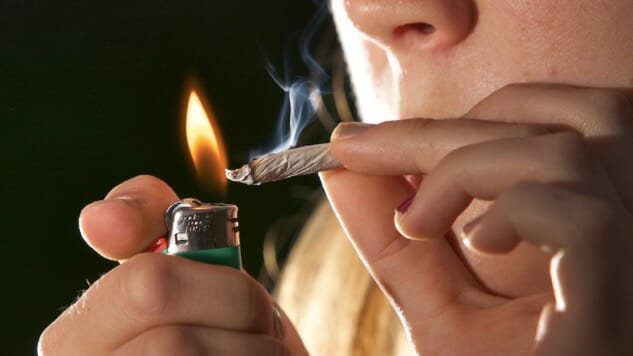Cannabis Connection: Does Marijuana Help or Hurt Health?

What do Eli Lilly, Pfizer, Merck, Bristol Myers Squibb, American Home Products and Upjohn all have in common? Whether by their current or former names, these pharmaceutical companies once sold medical cannabis, as did the Sears-Roebuck catalog. Going further back, the world’s oldest pharmacopoeia included medical cannabis, as did the U.S. pharmacopoeia through the early 1940s, and medical doctors regularly fought against anti-cannabis bureaucrats. For example, when the former Assistant Commissioner of the Prohibition Bureau convinced Congress to prohibit cannabis in 1937, a representative from the American Medical Association (AMA) testified against it, even suggesting the anti-alcohol crusader used the then-unknown term “marijuana” so the public wouldn’t realize what he wanted to ban.
Cannabis is one of the oldest medicines known to man, but decades of propaganda, stigma and misinformation turned the plant into a divisive issue and political third rail. Where does this leave discerning Americans who genuinely want to know the potential benefits and harms of cannabis? Paste’s new column Cannabis Connection will attempt to address the many issues surrounding medical marijuana, and we start with a look at the potential benefits and risks and why we lack more definitive answers at this stage of the game.
The Real Health Risks of Cannabis
In the 1930s, the aforementioned Prohibition vet succeeded in banning cannabis by convincing Congress that it turned people into axe-wielding maniacs and murders. Similar claims occur even today, e.g., the StopPot2016 campaign said cannabis is behind most mass murders and that “radical Islams” (sic) use it to turn young people into terrorists. Most people who can read at a fifth-grade level laugh off such rhetoric, but studies in clinical journals have made more credible claims that suggest cannabis increases the risk of psychosis and schizophrenia. This specific risk will be examined more closely in a future column, but many in the scientific community are suspicious or dismissive of this and similar extreme claims. There are, however, two major health risks worth noting, and they are often interconnected.
One of the more serious health risks associated with cannabis is self-medicating an undiagnosed mental health disorder like bipolar, PTSD, anxiety or depression. This is a risk for all psychoactive substances, including alcohol and pharmaceutical drugs, but it is under-addressed in the cannabis community. According to the 2014 National Survey on Drug Use and Health (NSDUH), nearly one in five adults aged 18 or older had a mental health disorder in the previous year, yet such health issues still involve high levels of stigma, denial and self-medicating substance use. By using cannabis to suppress symptoms rather than treat the disorder itself, most self-medicating users allow the condition to grow worse. Substances like cannabis and benzodiazepine (e.g., Xanax, Valium) should be temporary aids during flare ups as individuals treat the disorder directly through comprehensive treatment that can include cognitive behavioral therapy (CBT), motivational interviewing, dialectical behavior therapy (DBT) and other therapeutic tools.
Physical addiction is a serious risk factor for alcohol, cocaine and opioid pain relievers but not cannabis; however, psychological addiction is a risk. Though rare, psychological addiction is more akin to a process addiction where behaviors like shopping, gambling or gaming produce an abnormal spike in pleasure-producing dopamine. Individuals with intelligence-deficit disorder will suggest curing such addictions with will power alone, but psychological and process addictions are serious health issues that often correlate with co-occurring mental health disorders. A 2005 study in the American Journal of Psychiatry suggested addiction and mental health disorders might be different expressions of similar neurobiological abnormalities, and the current Diagnostic and Statistical Manual of Mental Disorders actually classifies addiction as a mental health disorder. Likewise, the aforementioned NSDUH survey found that nearly 40 percent of substance abusers had one or more co-occurring mental health disorders. This is very import: Anyone with a psychological addiction to cannabis should seek integrated rehabilitation treatment, which is a covered service under many health insurance plans.
Side note: Cannabis users can experience a mild physical dependence producing short-term withdrawal symptoms like insomnia and irritability. By comparison, caffeine dependence can produce withdrawal symptoms like sleepiness and irritability. Epidemiological studies on substance abuse often use physical dependence as a proxy for addiction, even though they are two different disorders, and this conflation explains so-called “marijuana addiction” rates. By these standards, the coffee addiction rate must be staggering.
The Potential Benefits of Cannabis
-

-

-

-

-

-

-

-

-

-

-

-

-

-

-

-

-

-

-

-

-

-

-

-

-

-

-

-

-

-

-

-

-

-

-

-

-

-

-

-








































